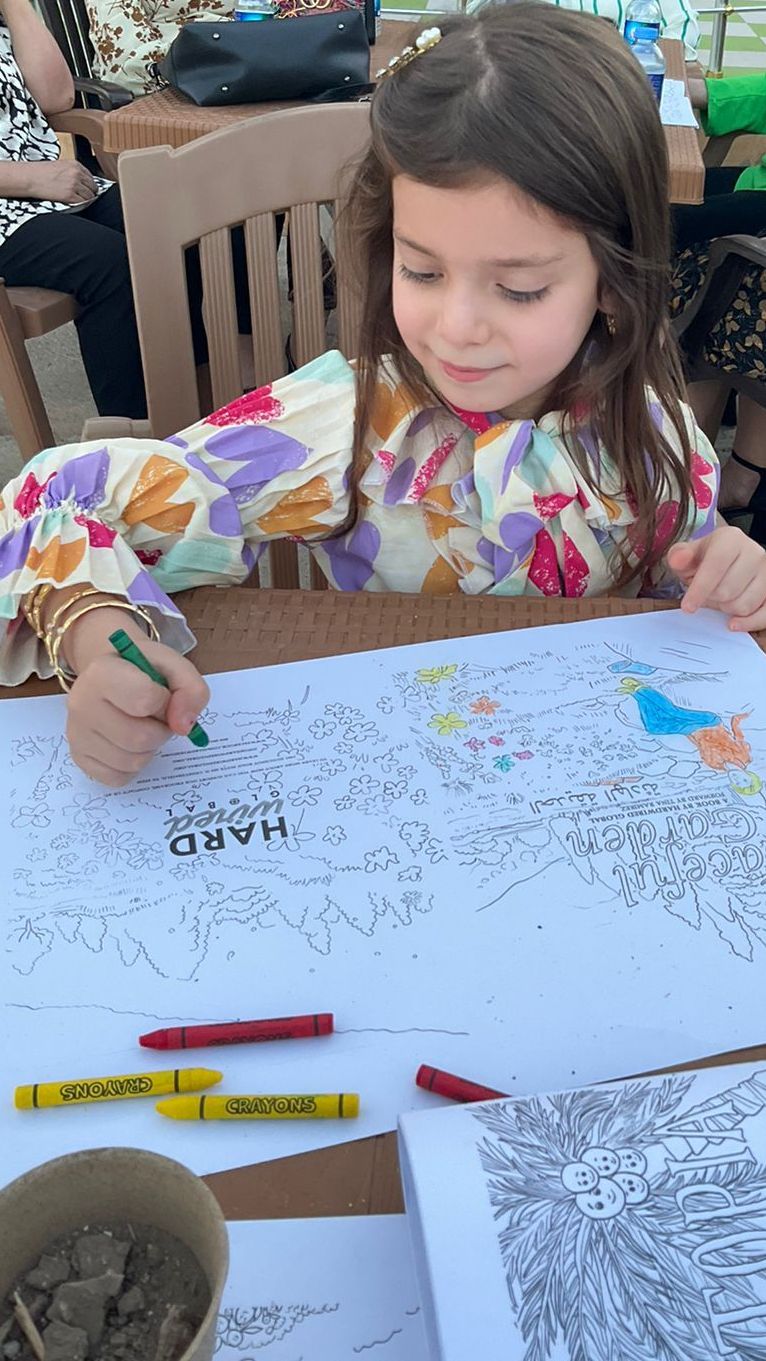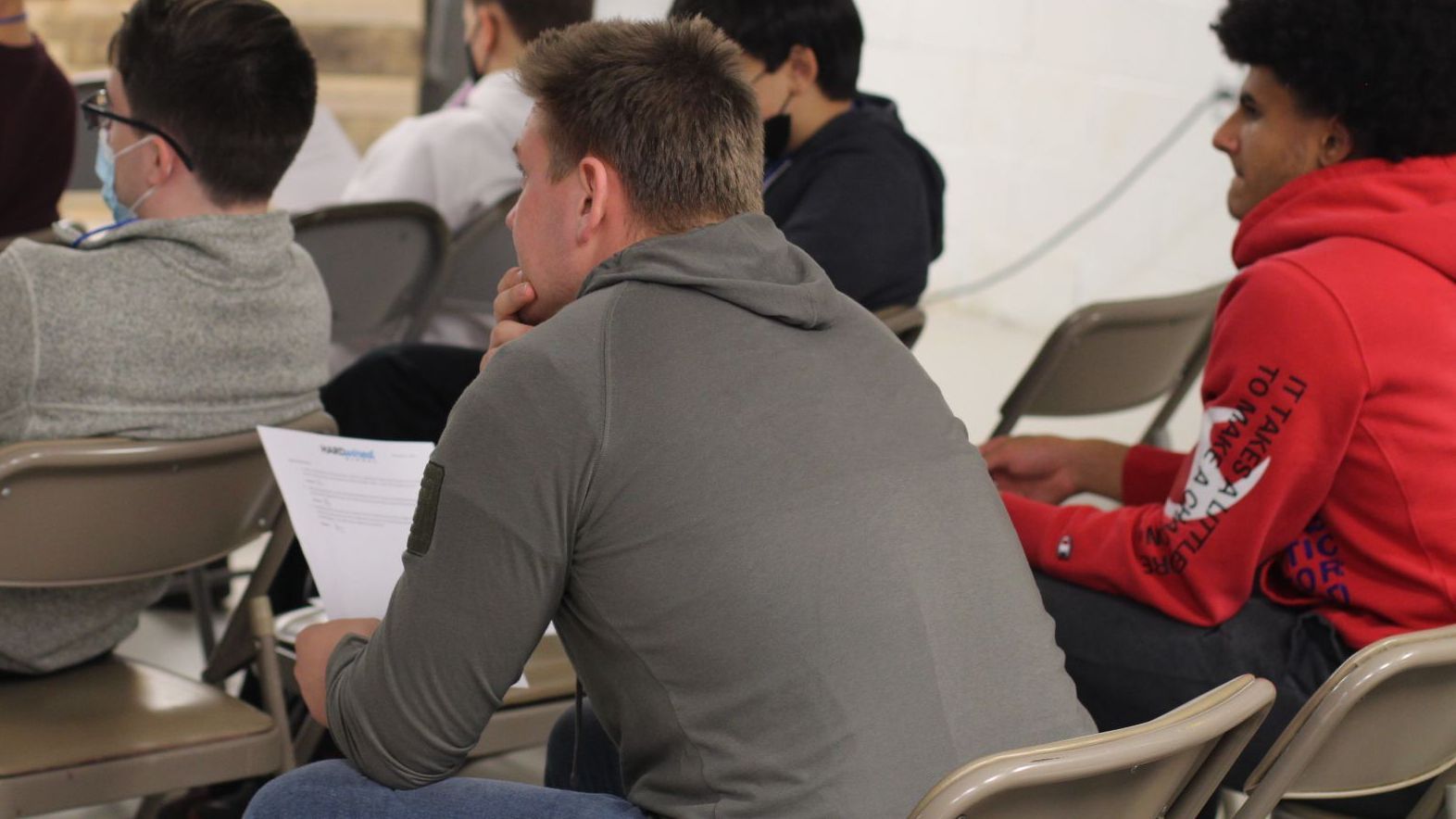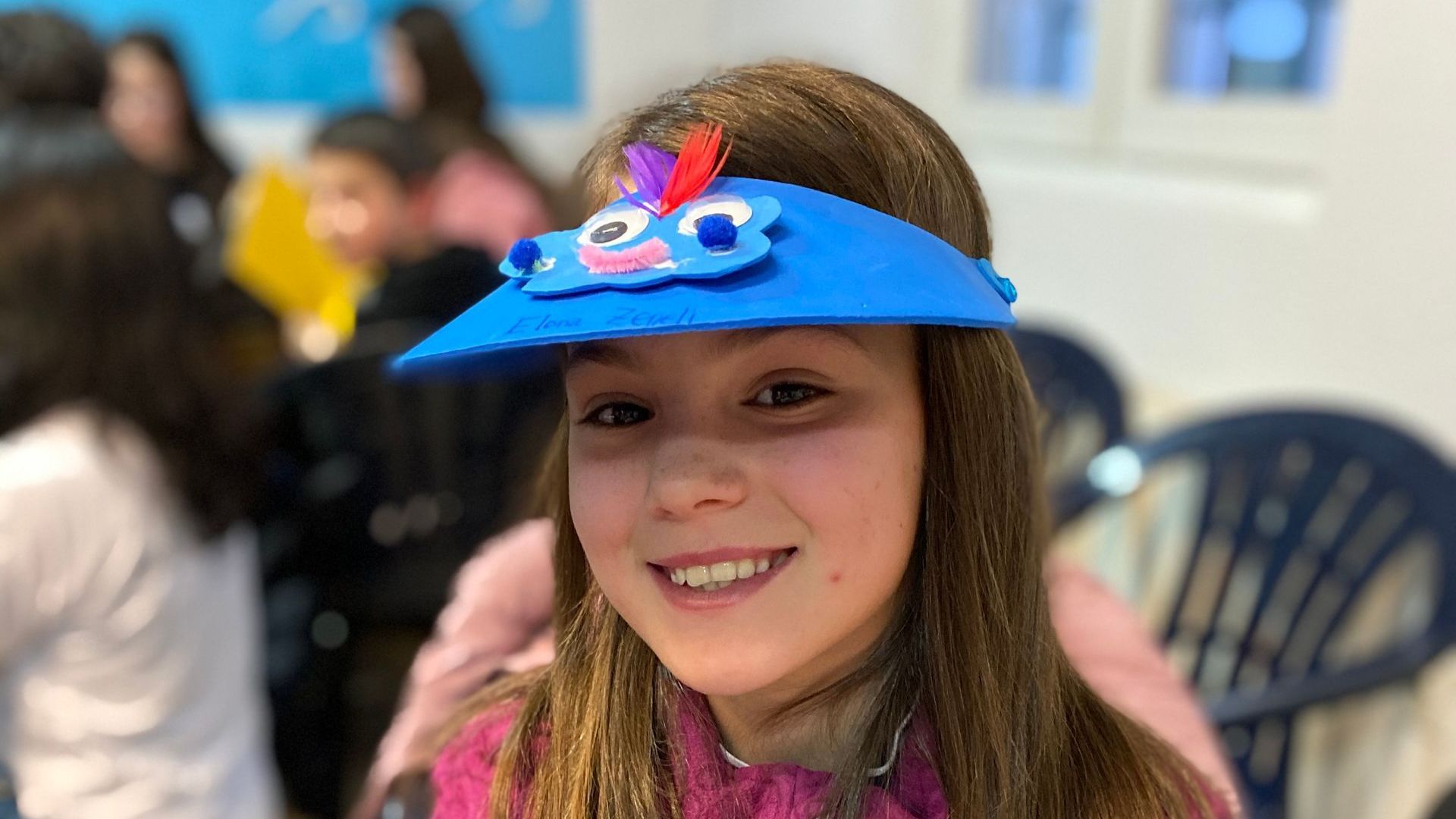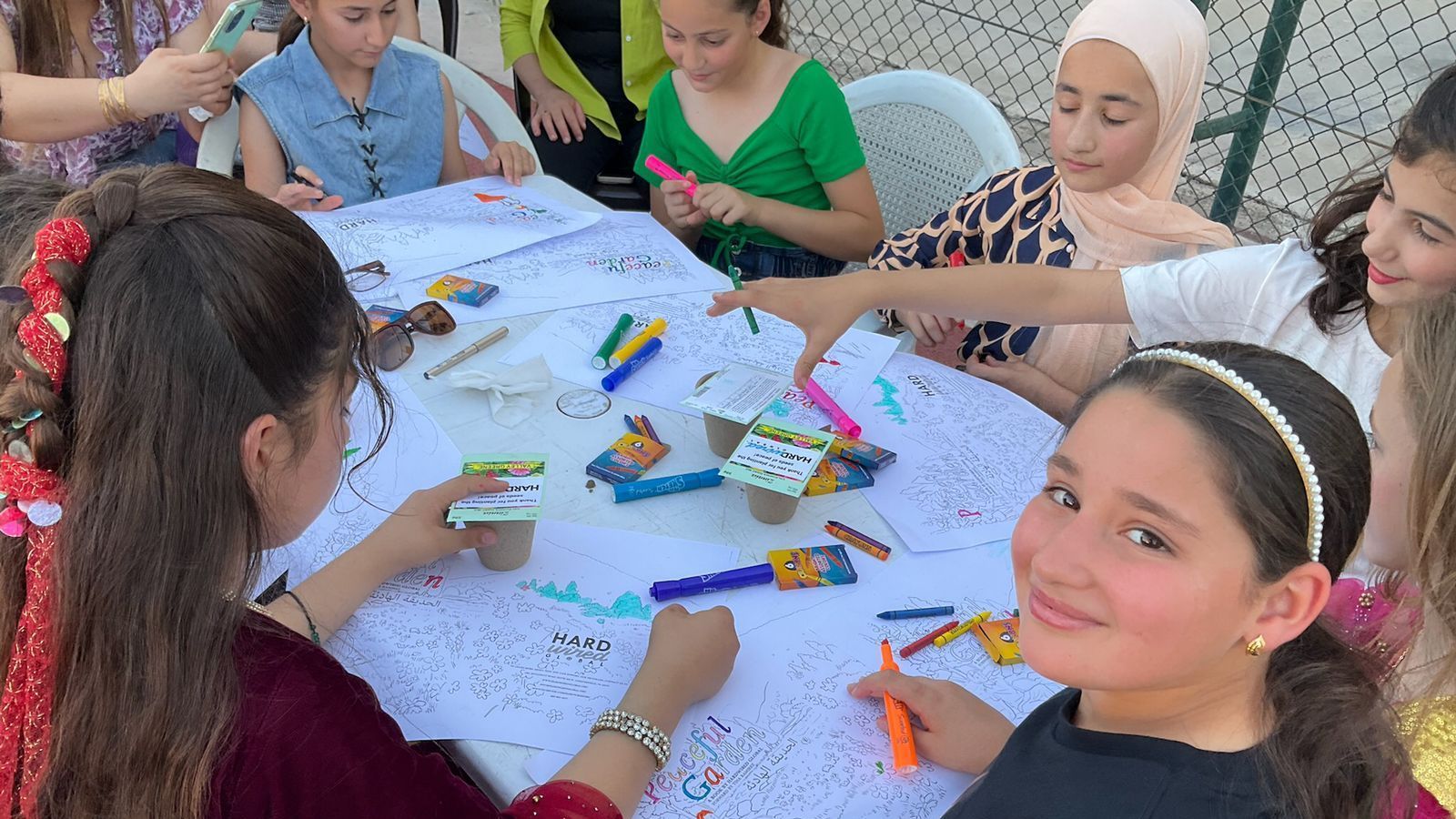
An Alternative to CRT: How It Works
Culturally responsive teaching methods have become a significant focus of teacher certification and professional development programs across the United States in the past decade. As an international organization that works with educators and students from many different cultures, our programs have set a standard for educating students about human rights and pluralism across many different environments. And while the culturally responsive teaching movement in the U.S. has sought new ways to adapt to and draw from the culture of the students, Hardwired employs a very different approach - one that provides an unique and innovative pedagogy to help all educators and students, regardless of their diverse backgrounds, come to a deeper understanding of human rights and pluralism by helping those we train think beyond culture.
Through a rights-based curriculum and conceptual change pedagogy, we lead educators and students to think beyond their regular framework for learning and to consider new ways of analyzing information that will help them develop a deeper understanding of issues affecting their perspective on the dignity and rights of others, including the importance of belief and expression in human culture, regardless of their differences. Educators and students emerge better equipped to recognize the inherent dignity and rights of others rather than focusing on the external differences exhibited in culture. And by understanding these rights, including the need for freedom of belief and expression inherent in cultures, they are better equipped to engage with one another in meaningful dialogue across their deepest differences.

Our Impact
Hardwired's goals are distinct. Unlike culturally responsive teaching and related pedagogies, we help educators and students from diverse backgrounds understand their rights and freedoms and how to defend their beliefs regardless of culture or differences of opinion and belief. Students emerge more confident in themselves and their ability to live according to their conscience and beliefs - and they are more likely to protect that right for others as well, regardless of their differences. And because conflict never begins with what we can agree on, we help those we train understand that agreeing with one another is not required for peace or respect. Our approach is grounded in conceptual change theory and a rights-based curriculum that enables those we train to develop a deeper respect for the dignity and rights of others – especially the role of freedom of thought, conscience, religion or belief in human life for all people worldwide.
And whereas culturally responsive teaching focuses on teaching to cultural differences, Hardwired focuses on teaching to the dignity and rights common to all people, regardless of their culture. And by doing so, we lead those we train to a deeper understanding of the human impulse to believe which may be reflected in their culture to change how they engage with others across their deepest differences in order to embody pluralism and respect for the dignity and rights of others in the classroom. Educators who have experienced a conceptual change through our program begin to model the values of pluralism in their classroom, a space here vibrant dialogue can occur across our deepest differences. And we have observed that changed educators lead to changed classrooms, which can be sustained long after the initial training regardless of the curriculum. We have also observed students be able to move beyond tolerance and embody pluralism – through changes in their perspectives, attitudes and behaviors which have extended well beyond the classroom, into their homes and community.

What We Offer
Hardwired's Educational Programs are designed to equip educators with the skills needed to facilitate respect for the dignity and rights of others as evidenced by students' engagement with one another, especially across their deepest differences, through understanding, self-reflection, critical thinking, dialogue, and the open expression of diverse ideas. Through a human rights-based curriculum and unique pedagogy, Hardwired equips educators to incorporate the values of pluralism into their lessons and classroom – including the right of each student to dignity, equality, non-discrimination, the freedom of thought, conscience, religion or belief, and the freedom to express differences of opinion and belief with others among others. Throughout the program, they learn how to engage in more meaningful dialogue with one another across their deepest differences and respect a variety of human rights.
Through our proprietary simulation – Fruitopia – participants (teachers and students alike) are immersed into a fictitious culture of fruit that navigate various challenges as they interact with different fruit on the island of Fruitopia. The training program centers on an analogy for pluralism though the use of fruit tribes and their fictitious cultures to help educators and students experience how people live together in peace, outside of their frame of reference. Trainers lead participants to develop new fictitious fruit cultures in groups; once groups of students have created and adopted their new identity, they will face various challenges that help them overcome their fears, protect their rights, and live in peace with others. They learn how to navigate the different values, obligations, needs, and fears of others. They develop skills to overcome their misconceptions, bias and fear of others, and engage with people who are different from them. The simulation works because our goal is to teach participants to recognize the inherent dignity of each fruit – or person – and the rights they require to express their unique culture, which includes their beliefs about the world and how they express those beliefs, among other areas of human rights. The simulation builds a deeper understanding of the rights they and others need to exist in dignity and freedom. And by the end, participants are better equipped to articulate and express their own culture and beliefs, engage in meaningful dialogue and interactions with people from different backgrounds and beliefs, and exhibit respect for the dignity and rights of others.

Resources
Hardwired's training programs support curriculum development, equipping educators from diverse backgrounds, beliefs, and environments to apply the lessons of pluralism within their local context. Our series of Children’s Books were based on lessons written by teachers in different countries who built an analogy for pluralism and human rights from their own cultural context.
Testimonials
What is so amazing about the United States is that here we protect our basic rights and freedoms, and we respect the value of all people. When you grow up in a country where that is not the case, as I did, these concepts can be almost incomprehensible at first, and are astounding and beautiful when understood.
Enes Freedom, former NBA Basketball Player and Human Rights Advocate
(cont.) Similarly, teens that have grown up in America will find it hard to believe that these concepts aren’t a given for their refugee peers. What’s great about this program is that it helps establish a bridge between these different baselines and the students come away with a better understanding of each other and of the inherent value of every individual.
Enes Freedom, former NBA Basketball Player and Human Rights Advocate
We have gained a new and vast repertoire of modern educational strategies, a passion to keep learning more, and a broader network of like-minded colleagues...
This training will support and protect the students of my nation from the hardships and misery of the current situation they are living.


